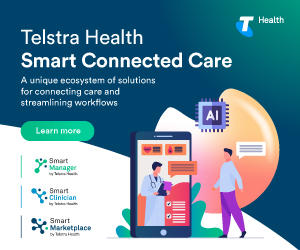Demystifying the cloud
The pressure on the healthcare industry to be more efficient and agile means more practitioners and healthcare organisations are turning to technology to generate better patient outcomes.
But as more cloud-based technology starts to surface to offer more innovative solutions, one of the challenges of uptake is the lack of understanding of what ‘cloud’ really means.
In this article, we take a look at what cloud is and break down key industry concerns such as storage, security and safety.
What is cloud?
Cloud technology refers to computing services, such as software and data storage, accessed over the internet, like an email inbox you access through your internet browser. Instead of downloading software, or maintaining a local server, when you use the cloud you access information and programs over the internet.
Public cloud
The public cloud is defined as computing services offered by third-party providers over the public Internet, making them available to anyone who wants to use or purchase them (1).
Private cloud
The private cloud is defined as computing services offered either over the Internet or a private internal network and to selected users only instead of the general public (2).
Where is data in the cloud stored?
Contrary to common perception, the cloud does rely on data being stored in a centralised physical location; known as a data centre. Public cloud data centres are operated by trusted providers like Microsoft, and allow secure access to individuals and organisations that hold a service subscription. Private clouds are often owned and operated by the company using it with the support of an IT provider.
Who has access to the data when you use the cloud?
Only those that you have given permission to can access the data you store in the cloud. In reality, fewer people have access to data stored in the cloud than data stored on local servers. For example, IT providers have access to local servers for maintenance purpose, which by default provides access to the data stored on them. In the cloud, the cloud provider takes care of maintenance and updates without access to your data.
If I use a cloud service, is my patient’s data safe?
Recent industry commentary has noted that security is as much about upskilling employees to properly use services as it is the technology itself. While all data storage solutions have vulnerabilities, the benefit of the cloud is that much of the maintenance that minimises data-loss risk is automated, for example system back-ups.
At MedicalDirector, we are invested in educating industry and collaborating to develop software that benefits industry, that is why we developed the first cloud based clinical software platform Helix.
When it comes to cloud solutions it’s important to discuss not only security considerations, but the impact of such technologies on outcomes and day-to-day operations. If you would like to learn more about Helix, the cloud solution for Clinical and Practice Management, visit medicaldirector.com/helix or contact us on 1300 300 161
1/ Microsoft, What is a public cloud? Available at: https://azure.microsoft.com/en-au/overview/what-is-a-public-cloud/
2/ Microsoft, What is a private cloud? Available at: https://azure.microsoft.com/en-au/overview/what-is-a-private-cloud/









